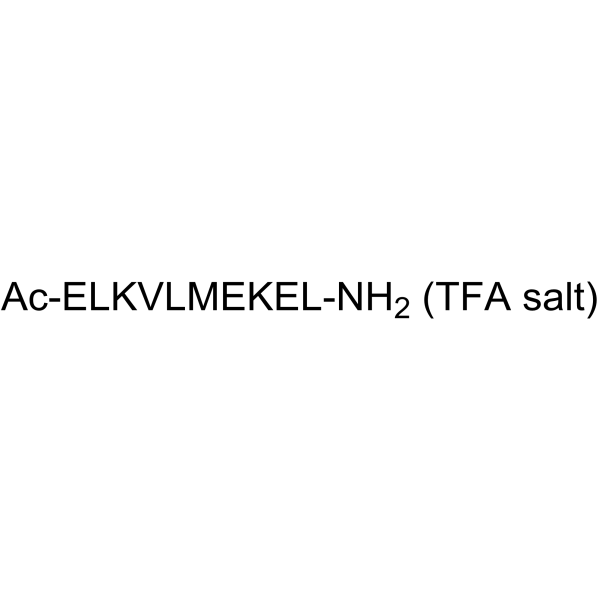RAGE Antagonist Peptide TFA(Cat No.:I044300)is a synthetic peptide designed to inhibit the interaction between the Receptor for Advanced Glycation End-products (RAGE) and its ligands, such as HMGB1, S100 proteins, and AGEs. By blocking RAGE activation, this peptide reduces downstream signaling pathways involved in inflammation, oxidative stress, and tissue damage. It is widely used in research on chronic inflammatory conditions, neurodegenerative diseases, diabetes, and cancer. The TFA (trifluoroacetate) form enhances the peptide’s stability and solubility, making it suitable for in vitro and in vivo experimental applications targeting RAGE-mediated pathologies.

